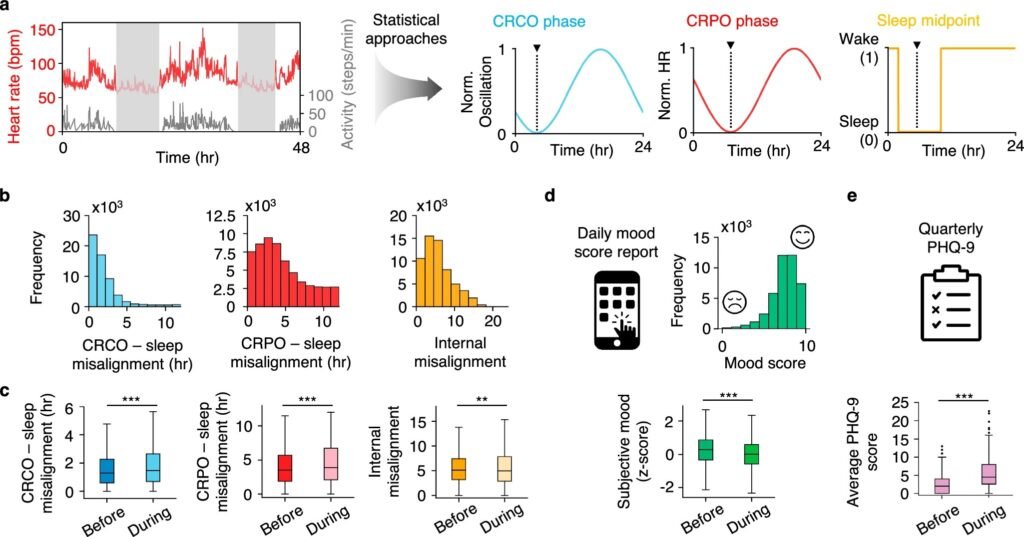Sleep schedules are often one of the first things that people choose to compromise in order to check everything off their to-do lists, especially with the end of the year approaching. But folks hoping for happy holidays should reconsider.
A new study from the University of Michigan shows that when people’s sleep cycles are misaligned with their internal clocks, or circadian rhythms, it can have drastic effects on their moods. Conversely, getting sleep when the body’s expecting it provides a potent boost to one’s emotional state and could alleviate symptoms associated with mood disorders, according to senior author Daniel Forger.
“This is not going to solve depression. We need to be very, very clear about that,” said Forger, professor in the Department of Mathematics and director of the Michigan Center for Applied and Interdisciplinary Mathematics. “But this is a key factor that we can actually control. We can’t control someone’s life events. We can’t control their relationships or their genetics. But what we can do is very carefully look at their individual sleep patterns and circadian rhythms to really see how that’s affecting their mood.”
The research has been published in npj Digital Medicine.
Interns, Fitbits, and questionnaires have played a crucial role in shedding light on the connection between sleep, circadian rhythms, and mood. The Intern Health Study, which works with hundreds of first-year training physicians, provided valuable data for the study. Interns wore Fitbits to monitor their heart rate, activity, and sleeping habits while completing routine mood surveys and quarterly depression screening questionnaires.
By analyzing the Fitbit data and questionnaire responses, the research team was able to establish links between sleep-circadian rhythm alignment and mental health. The study revealed that individuals with desynchronized rhythms experienced a significant increase in depressive symptoms, as measured by the Patient Health Questionnaire (PHQ-9).
The study also identified three important patterns that play a role in mood regulation: the central circadian clock, peripheral circadian clocks, and sleep cycles. The team found that a misalignment between the central circadian clock and sleep had a particularly negative impact on mood, especially in individuals engaged in shift work.
These findings challenge previous assumptions about the uniform impact of circadian disruptions across different physiological clocks. The research team is now looking to expand their study to other groups, including students, older adults, and individuals with psychiatric disorders, to further understand how circadian disruptions manifest in different populations.
Overall, the study highlights the importance of considering different rhythms representing different parts of the body and lifestyle factors when assessing mental health. By leveraging technology like Fitbits, individuals can better understand how circadian disruptions are affecting their mood and take steps to improve their sleep patterns.
The scalability of this approach offers promising potential for helping individuals manage their mental health through better sleep habits. By harnessing the power of technology and understanding the intricate connections between sleep, circadian rhythms, and mood, individuals can take proactive steps towards improving their overall well-being.


